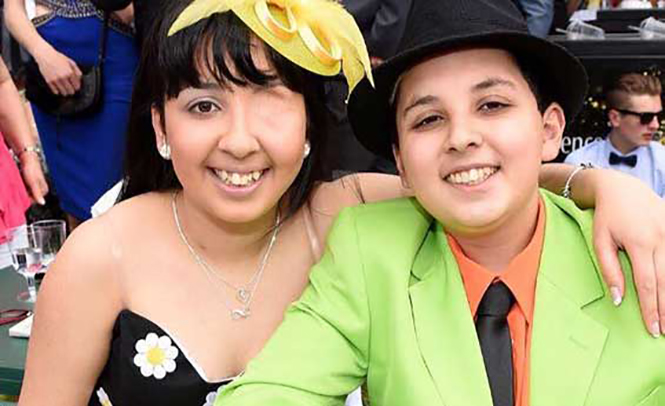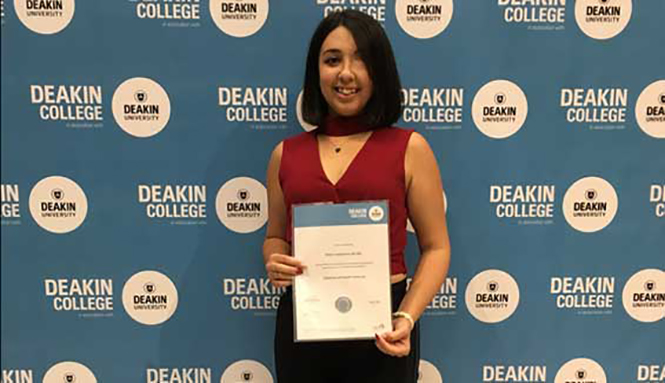 Mary-Jo and James
Mary-Jo and James
My cancer journey began in 2011 when I started having blurry vision in my left eye. I was referred to the Eye and Ear hospital after visiting my optometrist, where my long and tiresome period of diagnosis took place.
They did blood tests, examinations and misdiagnosed me with optic neuritis (inflammation of the optic nerve). The treatment was a steroid infusion for three days, which they wanted to do on my first day of Year 7.
I then became blind in my left eye. Doctors were stunned so they transferred me to the Royal Children’s Hospital. After many more scans and doctor’s appointments I was given the bad news.
I had osteosarcoma (bone cancer) in the left orbit of my eye. I was told I would have to undergo chemotherapy, radiation and surgery.
Then came the moment where I was told that the chemotherapy would result in me losing my long beautiful black hair. I broke down into tears.
I was offered the option of having a wig so I took it. I can completely understand how much confidence a wig can give to a women going through cancer. The physical changes, beginning with the loss of hair, can really destroy your self-confidence, motivation, happiness and will to survive.
I had 18 rounds of chemotherapy, 21 days of radiation and a total of six surgeries. The doctors told me that they would need to remove my left eye as the cancer had spread and it was the only way to be cancer-free.
I was distraught at the idea, but was also open to whatever helped me to survive.
With my last treatment, I was given the good news. I was cancer-free. I began 2012 thinking this is my second chance at a normal life, going back to school and taking on the things a normal 13-year-old would do.
Little did I know that 2012 would be the year that we have to do this all over again. That was the year my little brother was diagnosed with the same cancer I had - osteosarcoma in his leg.
It was another year of hospital visits, chemotherapy, radiation and surgeries. Unfortunately at the end of it all we were given the worst news possible.
There was nothing more the doctors could do for my little brother James.
We were devastated. I guess you could say my family never got a break.

But even that wasn’t the last obstacle. At the beginning of 2015 I started having constant headaches again, and an MRI showed a blood clot in my brain as a result of my radiation. My operation was successful but I woke up to face the biggest complication of my life, the loss of James.
From my experience, came the desire to help others. I am currently in my second year of university studying a Bachelor of Biomedicine in medical genomics. I want to be an orthopaedic surgeon.
We Relay in honour of James, and to raise awareness and funds to help find a cure. I don’t want anyone to have to go through what we did.
I also love the community feel, the survivor and carers lap, and the candlelight ceremony. Last year my family created a baton with me and my brother on it and we walked. It’s a great thing – I love it!
My family has been through it all, but one thing we knew is that together we could get through anything. We also had amazing love and support around us, and for that we are so grateful.
I walked into life with a smile on my face, a jump in my step and always ready to take on the world. Sometimes I felt I wanted to give up, but it’s just not in my blood.
This is for everyone we have lost, and for James, who we love so much.
Do you want to give back to your community and help others? Find your local Relay For Life event and register today!